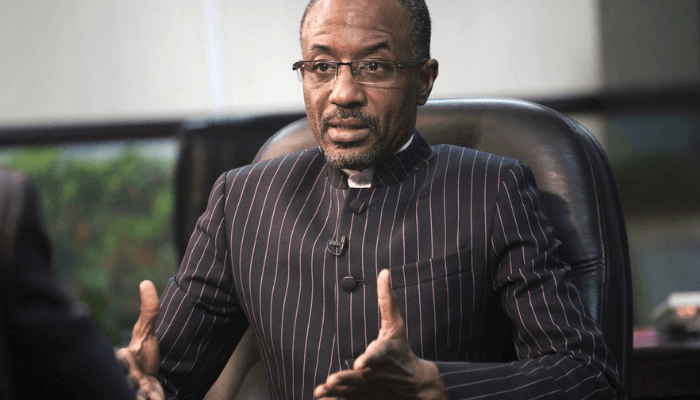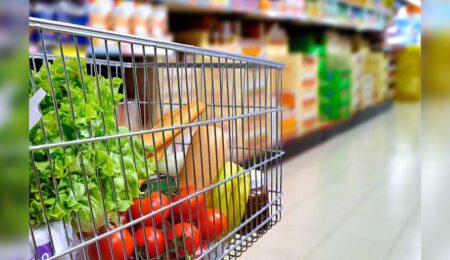Sanusi Lamido Sanusi, former governor of the Central Bank of Nigeria, has affirmed that the ruling of the Bankers’ Committee regarding the contentious issue between Ecobank Nigeria Limited and Honeywell Group over an alleged N5 billion debt still stands.
Sanusi said the Bankers’ Committee, acting as a consensus-based body, has the authority to make binding decisions for banks.
“The Bankers’ Committee by consensus, in general, makes binding rulings for banks. All the banks submit to its decisions. It acts almost like an arbitral court but no it is not a court,” he said.
Highlighting the significance of the committee’s rulings, Sanusi said that bankers themselves understand their rules and practices better than the courts, making the committee’s decisions widely respected and followed within the banking sector.
“However, this is a ruling by peers that all tend to abide by because these things go around. Bankers actually know their own rules and practices better than the courts,” he said.
The dispute between Ecobank Nigeria and Honeywell Group over the alleged N5 billion debt seems to have been resolved as early as 2015, following the declaration by the Bankers’ Committee.
According to a report from the committee’s Ethics and Professionalism sub-committee, the agreement for Honeywell to pay Ecobank N3.5 billion as a full and final settlement was deemed valid and should be honoured.
In response to a letter from Ecobank Nigeria, lawyers representing Oba Otudeko clarified that the claims made about decisions from the Supreme Court in case SC/CV/210/2021 on January 27, 2023, affirming the indebtedness of their client or Honeywell Group Plc were false.
The lawyers stated, “The letter falsely alleges that there was a decision of the Supreme Court in SC/CV/210/2021 made on 27th January 2023 ‘affirming the indebtedness’ of our clients and that the decision also ‘commanded,’ our above-stated clients to perform certain acts, neither Dr. Oba Otudeko, CFR nor Honeywell Group Plc was a party to the Supreme Court decision/proceedings and no order was made against them.”
They further clarified that the specific amount of N13,507,052,417.99 mentioned in Ecobank’s letter was not part of any court decision or judgment in Nigeria or elsewhere.
“The sum of N13,507,052,417.99 (thirteen billion, five hundred and seven million, fifty-two thousand, four hundred and seventeen naira, ninety-nine kobo) stated in Ecobank’s letter is/was not contained in the Supreme Court decision or any extant Court decision in Nigeria or elsewhere. No order of the court has also awarded same or any judgment sum (as debt owed) at all in favour of Ecobank as a liability from our clients or any of the Honeywell companies.”
The lawyers concluded that no court order has awarded such a sum as a debt owed by their clients, or any of the Honeywell companies, in favor of Ecobank.
The Bankers’ Committee, in the June 26, 2015 report, with reference number ODA/FMA/BUO/1493, said it received a petition that Ecobank was “attempting to renege on a settlement agreement” on facilities it granted to Anchorage Leisures Limited, Siloam Global Services Limited and Honeywell Flour Mills Plc.
The committee’s report, which was addressed to Ecobank’s managing director and chief executive, said “after several offers and counter offers with respect to the amount for the settlement, the parties agreed at the meeting of 22nd July 2013, involving your bank’s MD/CEO and the Honeywell Group chairman that Honeywell would pay the sum of N3.5 billion in full and final settlement of the indebtedness of the three companies. It was also agreed that Honeywell would immediately proceed to pay the sum of N500 million as a sign of faith towards the agreement.”
According to the report, Honeywell paid the agreed N500 million to Ecobank on July 23, 2013 and completed payment of the agreed N3.5 billion on January 10, 2014. Thereafter, the group requested for a letter of discharge from Ecobank.
However, Ecobank in a November 14, 2014 letter to Honeywell Group, claimed that the N3.5 billion was a partial payment and that the agreement that the sum was in full and final settlement was an “in principle understanding”.
How it all started
On July 23, 2013, Honeywell wrote to Ecobank accepting the terms for the resolution of the claim by the bank as agreed at the meeting held the day earlier and saying, “we confirm our agreement to pay the sum of N3.5billion as full and final settlement of our indebtedness to your bank. As part of the verbal agreement reached at the meeting, we shall immediately pay the sum of N500 million towards the facilities. We propose that the balance of N3 billion be paid in three equal half-yearly payments.”
That same day, Ecobank sent back a response in which the bank said, “please note that the agreement was for a full and final payment of N3.5 billion to be partly paid immediately by – N500 million on Monday, July 22, 2013, and the balance to be paid immediately thereafter before the CBN examiners leave the bank.”
The timing of the payment became a big issue and this saw both parties moving their wranglings to the court on October 16, 2015, via a suit by Ecobank before Justice Tsoho seeking to wind up Honeywell.
However, both parties began to get public attention for their dispute after Ecobank secured an ex-parte motion to restrain Honeywell and Oba Otudeko from operating their accounts in all banks and financial institutions and an order directing their respective banks to furnish Ecobank with details of their accounts in the banks.
This same bank-customer dispute was submitted to the subcommittee of ethics and professionalism of the Bankers’ Committee for adjudication and ruling was issued in favour of Honeywell, but Ecobank in a letter dated November 14, 2014, maintained that “during a recent CBN/NDIC review of the bank, the accounts were flagged and that the CBN had insisted that the amount outstanding be paid without further delay.”
On August 6, 2015, Honeywell filed a suit before Justice M. B. Idris in which it sought an interim injunction to restrain Ecobank from making any representation suggesting that it owed the bank and on August 10, 2015, the interim injunction was granted and both parties ordered by the court to maintain status quo.
Following this, Ecobank filed a preliminary objection on the basis that the Federal High court lacked jurisdiction to hear the dispute and on December 11, 2015, the court presided by Justice Idris held that the Federal High court had jurisdiction to hear the matter. Ecobank immediately appealed this decision.
On October 16, 2015, Ecobank filed two separate suits before Justice Abang. On this same day, Ecobank filed another two petitions before Justice Yunusa who on December 4, 2015, varied the ex-parte orders by granting Honeywell Flour Mills restricted access to its bank’s accounts allowing the company to take no more than N15 million weekly.
Read also: Explainer: How Bankers committee ruled in favour of Otudeko in unending saga with Ecobank
On July 13, 2018, justices of the Supreme Court made two rulings, both in favour of Honeywell.
In one, suit number SC.401/2016, which was an appeal by Honeywell against the ruling of a lower court in favour of Ecobank, the justices in the ruling read by Amiru Sanusi upheld the appeal.
In another ruling delivered by John Inyang Okoro, the Supreme Court justices reviewed an appeal brought before them by Ecobank in relation to the judgment of the Court of Appeal delivered on March 30, 2016, said inter alia, “having resolved all five issues against the appellant (Ecobank) , I hold that this appeal lacks merit and is hereby dismissed. I affirm the decision of the court of appeal delivered on 30th March 2016.”
In doing so, the Supreme Court justice said, “honestly, I have tried to understand the complaint of the appellant in this issue but it appears to be the more you look, the less you see.”






